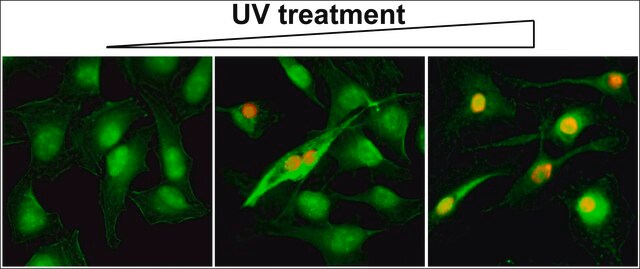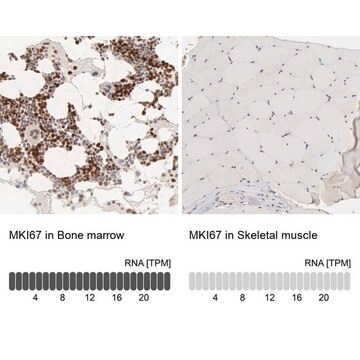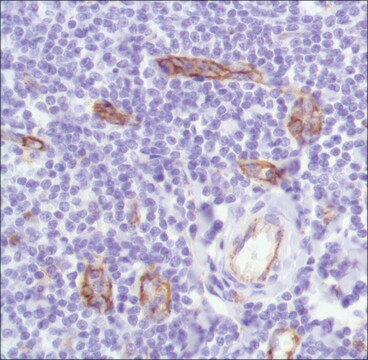SAB5500134
Anti-KI-67 antibody, Rabbit monoclonal
recombinant, expressed in proprietary host, clone SP6, tissue culture supernatant
About This Item
Productos recomendados
origen biológico
rabbit
Nivel de calidad
recombinante
expressed in proprietary host
conjugado
unconjugated
forma del anticuerpo
tissue culture supernatant
tipo de anticuerpo
primary antibodies
clon
SP6, monoclonal
reactividad de especies
human (tested)
reactividad de especies (predicha por homología)
bovine
técnicas
immunohistochemistry: 1:200
isotipo
IgG
Nº de acceso UniProt
Condiciones de envío
wet ice
temp. de almacenamiento
2-8°C
modificación del objetivo postraduccional
unmodified
Información sobre el gen
human ... MKI67(4288)
Descripción general
Inmunógeno
Aplicación
Acciones bioquímicas o fisiológicas
Características y beneficios
Forma física
Cláusula de descargo de responsabilidad
¿No encuentra el producto adecuado?
Pruebe nuestro Herramienta de selección de productos.
Código de clase de almacenamiento
10 - Combustible liquids
Clase de riesgo para el agua (WGK)
WGK 2
Punto de inflamabilidad (°F)
Not applicable
Punto de inflamabilidad (°C)
Not applicable
Elija entre una de las versiones más recientes:
Certificados de análisis (COA)
¿No ve la versión correcta?
Si necesita una versión concreta, puede buscar un certificado específico por el número de lote.
¿Ya tiene este producto?
Encuentre la documentación para los productos que ha comprado recientemente en la Biblioteca de documentos.
Los clientes también vieron
Nuestro equipo de científicos tiene experiencia en todas las áreas de investigación: Ciencias de la vida, Ciencia de los materiales, Síntesis química, Cromatografía, Analítica y muchas otras.
Póngase en contacto con el Servicio técnico










